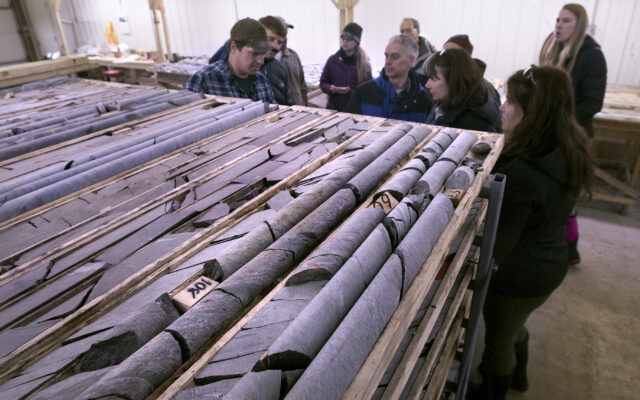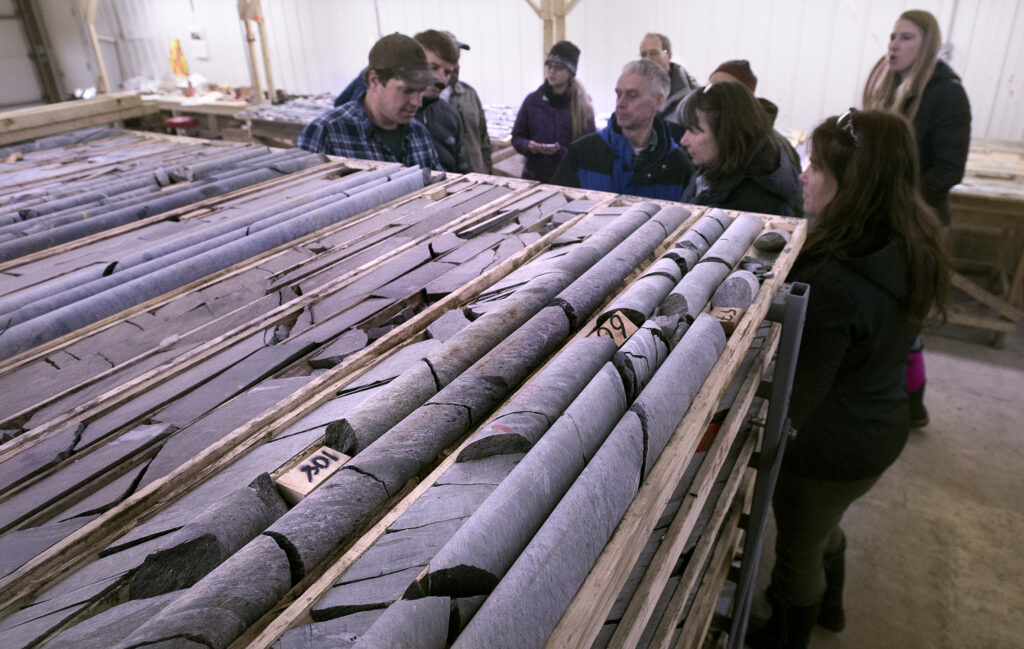
Public will get to weigh in on controversial mining project
By Kathleen Phalen Tomaselli, Houlton Pioneer Times Staff
The Maine Land Use Planning Commission will hold a three-day public hearing on a Canadian junior mining company’s rezoning application for the Pickett Mountain Mining Project, despite objections from intervening parties.
The LUPC scheduled public hearings on the Wolfden mining project for Oct. 16, 17 and 18, at Stearns Jr./Sr. High School,199 State Street, Millinocket.
During the pre-public hearing conference in July, the intervenors — including the Penobscot Nation, Houlton Band of Maliseet Indians, the Natural Resources Council of Maine, the Conservation Law Foundation and Earthjustice — requested the public hearings be postponed because Wolfden’s application does not identify where ore processing and storage facilities will be located.
The intervenors want the LUPC to reject the mining company’s rezoning application for the Pickett Mining Project, located about nine miles from Patten and five miles into the forest off Route 11. The area is zoned for small cabins. Without rezoning approval, the mining project cannot move forward.

CORE SAMPLES — State agency representatives view core samples collected by the Ontario-based Wolfden Resources Corp. north of Patten in this March 2018 file photo.
The proposed mining project is the first real test of Maine’s strict mining law passed in 2017 meant to protect the state’s environment.
The mining project would require an ore processing plant to transform raw material into usable commercial products, according to the Natural Resources Council of Maine. It also would need a tailings management facility to permanently store the waste produced by processing the ore.
Wolfden representatives opposed the intervenors’ request to postpone the hearing, citing its plan to house the ore processing and tailings facilities off-site and outside of the Land Use Regulation Commission’s jurisdiction.
“The processing facility is the most dangerous part of the mining operation and it must be located near the mine,” said Nick Bennett, staff scientist at the Natural Resources Council. “This is really a smoke and mirrors game saying ‘don’t look behind the curtain.’”
LUPC’s presiding officer, Commissioner Everett Worcester of Ornville Township, denied the intervening parties’ request to postpone. The October public hearing process is the most appropriate venue to raise concerns regarding insufficient evidence, Worcester said. The mine threatens Wabanaki Nation lands and waters, according to Earthjustice senior attorney Aaron Bloom, who filed the petition to intervene on behalf of all the parties.
“It is right in the headwaters of the West Branch Mattawamkeag River, and all of it is in critical habitat for endangered Atlantic salmon,” Bennett said. “It’s a real threat to the traditional outdoor economy in this region.”
This is Wolfden’s second application for Maine Land Use Planning Commission rezoning approval for a 374-acre parcel of the 7,135-acre Pickett Mountain project. The exploratory mining company withdrew its initial application after the LUPC cited multiple missed deadlines, errors and inconsistencies.
The public hearings give LUPC investigators evidence relevant to Wolfden’s application, although it’s only one source of information related to the review process, according to the LUPC.
Other considerations include the Wolfden application, written agency comments, pre-filed testimony, post-hearing briefs, rebuttal briefs and written public comments.
The public hearing includes daytime technical sessions and evening public comment time.
The intervenors have a formal role during the technical sessions and can bring in expert witnesses to weigh in on Wolfden arguments and cross examine company witnesses, Bloom said.
Commissioner Worcester condensed the technical hearing discussion topics to include financial practicability, water and fish resources and aquatic habitats, wildlife resources and habitats, natural character, historical and cultural resources and relevant tribal impacts and socioeconomics, according to the LUPC.
Wolfden officials have been reaching out to surrounding towns. Last year, they opened an office in the old drug store in Patten, hosting public events and pizza nights for the community. They held a watermelon and panning for gold event for kids during Pioneer Days this summer.
Wolfden Vice President of Development Jeremy Ouellette said on Aug. 30 that transparent communication with the public is important to the company and they want those affected by the project to have questions answered.
“To that end, Wolfden has been communicating via various avenues including attending town meetings, organizing open forum information sessions, attending public discussions alongside various organizations such as Natural Resources Council and Department of Environmental Protection, as well as opening an office for people to stop by and chat at any time,” he said.
Wolfden organized a community advisory committee for open public discussion; current board members represent Hersey, Island Falls, Sherman, Patten, Moro Plantation, and Mount Chase, said Ouellette, adding that they are open to others.
The Advisory Committee public forums are typically every two months, scheduled in advance and announced on the Wolfden Facebook page. There have already been three meetings at the Patten office, he said.
Topics included an overview of Wolfden and the Pickett Project, the project geology, the mining method and the LUPC rezoning process, Ouellette said.
Still, Natural Resources Council’s Bennett said that there are discrepancies between what Wolfden has said and reality. He pointed to the junior mining company’s lack of experience, small staff and a $40 million loss, as reflected in an August 2023 financial filing with the Toronto Stock Exchange.
“They have a very small staff and yet they’ve told the LUPC they are going to be the cleanest mine in the world,” Bennett said during a webinar last week. “They said they are going to use reverse osmosis process technology and be able to discharge waste water at levels cleaner than the natural ground and surface water. There is no hard rock mining company that we know of that can do that.